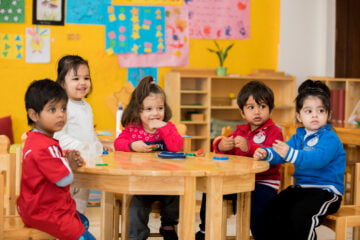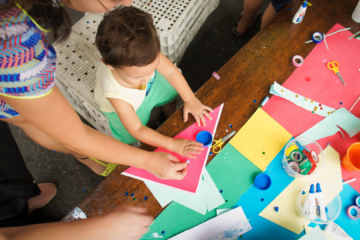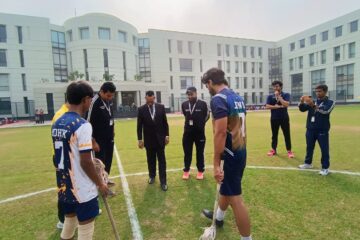Redefining the role of the IBCP program in crafting students’ future
In the broad fabric of human progress, education serves as a foundational thread, connecting information, skills, and values to empower individuals and move society forward. However, as we traverse the complexities of the twenty-first century, the landscape of education is experiencing tremendous change. Traditional teaching and learning approaches are being altered by the continuous march of technological innovation, globalisation forces, and the shifting requirements of a fast-changing society. In this comprehensive investigation, we will look at the multidimensional growth of IBCP program education and how its function is being redefined to meet the challenges and opportunities of the current era.
From Memorization to Critical Thinking
The annals of educational history are rich with stories of rote memorization and regurgitation, in which knowledge development was frequently confused with the ability to recall facts and figures. However, in an age when knowledge is copious and widely accessible, the emphasis has switched to developing critical thinking abilities. The ability of the IBCP program to analyse, evaluate, and synthesise information has become critical as individuals are bombarded with data from a variety of sources. IBCP school curricula are progressively emphasising analytical thinking, problem-solving skills, and creativity among students.
Concepts like project-based learning, inquiry-based techniques, and interdisciplinary studies are gaining popularity as educators recognise the need to allow students to delve deeply into topics and discover meaningful connections between disciplines. These techniques at international schools not only provide students with the skills they need to tackle challenging challenges, but they also foster a lifetime love of learning.
Beyond the Classroom Walls
The traditional classroom, with its rows of desks and chalkboards, no longer serves as the exclusive domain of learning. In an era characterized by digital connectivity and ubiquitous access to information, education has transcended physical boundaries, proliferating across digital platforms, online courses, and virtual reality technologies. Learning programs and remote access in IBCP schools have democratized learning, making it accessible to individuals regardless of geographical constraints or socio-economic status.
Personalized Learning
In education, one size does not fit all, because each student has unique learning styles, interests, and talents. Recognising this variability, educators are increasingly using personalised learning approaches that address learners’ specific requirements.
Personalised learning in IBCP schools enables students to take control of their educational journey by allowing them to work at their speed, explore deeper into areas of interest, and receive tailored support as needed. Personalised learning improves academic accomplishment while simultaneously nurturing the development of essential life skills such as self-direction, resilience, and meta cognition.
Embracing Diversity and Inclusion
Education is not merely about transmitting knowledge; it is also about fostering empathy, understanding, and respect for diverse perspectives. Inclusive education initiatives seek to create learning environments that celebrate diversity, accommodate varied learning styles and abilities, and promote equitable access to educational opportunities for all individuals, regardless of race, ethnicity, gender, or socio-economic background.
Culturally responsive teaching practices, inclusive curricula, and efforts to address systemic barriers to education are integral to creating inclusive learning environments where every student feels valued, respected, and supported. By embracing diversity and fostering a sense of belonging, inclusive education not only enriches the educational experience but also prepares students to thrive in an increasingly multicultural and interconnected world.
Preparing for the Future World of Work
Automation, artificial intelligence, and digitalization are driving global economic development. As work responsibilities change and industries shift, education must adapt to provide individuals with the skills and competencies required to succeed in the future labour market. The Fourth Industrial Revolution is transforming the nature of work, emphasising adaptability, technical literacy, and socio-emotional intelligence.
Fostering Global Citizenship
In an increasingly interconnected world marked by global concerns such as climate change, inequality, and geopolitical tensions, education plays a critical role in developing responsible global citizens. Global citizenship education in international schools focuses on intercultural competence, environmental stewardship, social justice, and a sense of common humanity.
Exchange programmes, service-learning projects, and cross-cultural collaborations help students develop a global perspective, empathy for others, and a desire to effect positive social change. Global citizenship education provides students with the knowledge, skills, and attitudes required to confront major global issues and contribute to the development of a more just, sustainable, and peaceful world by instilling a feeling of solidarity and connectivity.
As we chart a course towards a brighter future, let us re imagine IBCP program education as not merely a means to an end but as a transformative force that empowers individuals, enriches communities, and shapes the destiny of humanity.


